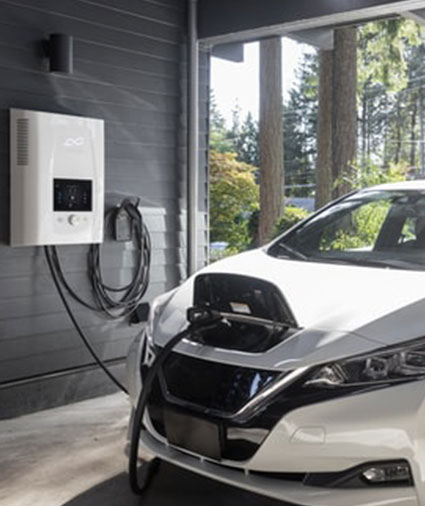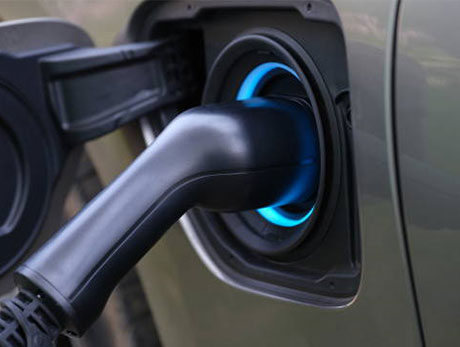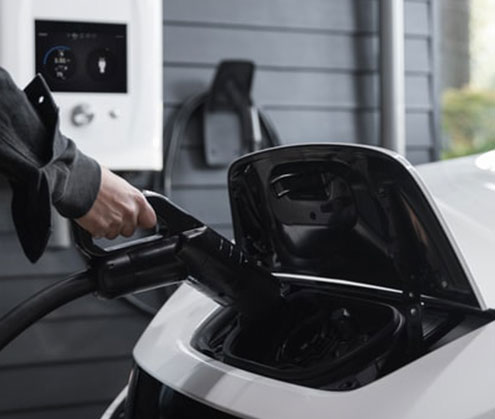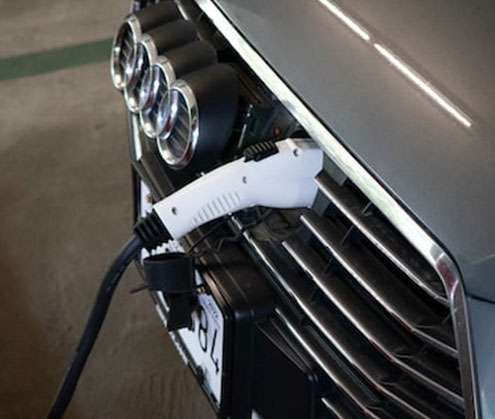Electric Car Charger Installation

Electric car charger Installation Dublin
A complete guide to charging an electric car at home, including electric car charger Installation Dublin, how to charge at home, how much it costs and how long it takes.
How to charge an electric car at home
To charge an electric car at home, you must have a home charging station installed where you park your electric car. You can use an EVSE supply cable for a 3 pin plug socket as an occasional back up.
- Drivers usually choose a dedicated home charging point because it’s faster and has built-in safety features.
- A home charger is a compact, weatherproof device that can be mounted on a wall with a charging cable attached or a wall outlet for connecting a portable charging cable.
- Electric car charger Installation Dublin for your home are installed by qualified specialist installers like NES.
Electric Car Charger types
There are four main types of electric vehicle charging :fast and ultra-fast. These represent the power and thus the charging rates that are available for charging an electric vehicle. Note that power is estimated in kilowatts (kW).
Each type of charger is connected to a set of ports designed for low or high drain and for AC or DC charging. The following sections describe the main types of charging points and the different connectors available.
Fast and ultra-fast chargers
Charging Speeds and EV Connections – Fast DC charging
50 kW DC load on either connector type
43 kW AC load on one socket type
Ultra-fast DC charging with over 100 kW on one of two connector types
All Rapid devices come with cables

Ultra Rapid Chargers Are The Fastest Way To Charge An EV
Super-fast chargers are the fastest way to charge an electric vehicle, often found at motorway service stations or near major thoroughfares. Fast devices deliver strong direct or alternating current – direct or alternating current – to charge a car as quickly as possible. Depending on the model, EVs can be charged to 80% in just 10-15 minutes, although an average new EV lasts about an hour on a standard 50 kW fast charger. A device’s output represents the maximum charge rate available, although the car will decrease the charge rate as the battery is nearly fully charged.
As such, times are quoted for a charge to 80%, after which the charging speed tails off significantly. This maximizes charging efficiency and helps protect the battery. All fast chargers have charging cables attached, and fast charging can only be used on vehicles with fast charging function. Given the easily recognizable connector profiles – see images below – the specification for your model is easy to check from the vehicle manual or inspecting the onboard inlet.

Rapid DC chargers
DC fast chargers provide 50 kW (125 A) of power, use CCS charging standards, and are indicated by purple icons on the Zap card. These are the most common type of rapid EV charge points currently, and have been the standard for the best part of a decade. Both ports typically charge an EV to 80% in 20 minutes to an hour, depending on battery capacity and state of charge.
Ultra-rapid DC chargers
Ultra-fast DC chargers deliver a power of 100 kW or more. These are usually 100 kW, 150 kW or 350 kW – although other maximum speeds between these numbers are possible. These are the next-generation fast charging stations that can reduce charging times despite increasing battery capacity in new electric vehicles.
For electric vehicles capable of 100 kW or more, charging times are limited to 20-30 minutes for normal charging, even for models with larger battery capacities. Even though an electric vehicle can only draw a maximum of 50 kW DC, it can still use super-fast charging stations, because the power IS limited to what the vehicle can handle. As with 50 kW rapid devices, cables are tethered to the unit and provide charging via either CCS connectors.
Tesla Superchargers
Tesla’s Supercharger network also provides rapid DC charging to drivers of its cars but uses either a Tesla Type 2 connector or a Tesla CCS connector – depending on the model.
While all Tesla models are designed for use with Supercharger units, many Tesla owners use adaptors that enable them to use general public rapid points, with CCS adaptors available. The introduction of CCS charging on the Model 3 and subsequent upgrades to older models will allow drivers to access more of the UK’s fast charging infrastructure.
Model S and Model X drivers can use the Tesla Type 2 connector installed on all Supercharger units. Tesla Model 3 drivers must use the Tesla CCS connector, which is being phased in across all Supercharger units.
Rapid AC chargers
The AC fast chargers provide 43 kW of power (3-phase, 63 A) and use the Type 2 charging standard. Rapid AC units are typically able to charge an EV to 80% in 20-40 minutes depending on the model’s battery capacity and starting state of charge.

Save Your Money
Save money on utilities or increase value of your home by installing EV charging solar panels as a great option.
Home Is Energy
Everyday the sun provides us with abundance of free energy by placing solar panels on your roof.
Consult & Planning
Our remote industrial solar EV charging systems are designed to reliably power our customers' critical remote locations.
Certified Engineers
NES sales engineers on our staff have experience and can design any complete solar system.
A fully installed home charging point
Cost of installing a dedicated home charger
- After installation, you only pay for the electricity you use for charging.
- The charging speed of electric cars is measured in kilowatts (kW).
How fast you can charge an electric car at home
Home charging stations charge your car with 3.6kW or 7kW and offer a range of around 15-30mph (compared to 2.3kW with a 3-pin plug which gives a range of up to 8 miles offers per hour).
The maximum charging speed may be limited by your vehicle’s built-in charger. If your car allows charging speeds up to 3.6kW, using a 7kW charger will not harm the car.
- Electric car charger Installation Dublin
- Battery Installation Dublin
- Renewable Energy Dublin
- Heat Pump Installation Dublin
- Solar Panel Installation Dublin
- Solar Water Pump Installation Dublin
- Solar Hotwater Service Dublin
- Residential Solar Panels Installation Dublin
- EV Charging Points Dublin
- SEAI Grant Dublin

Telling about Nesireland Larry Geoghegan and James Buckley established Nationwide Energy Solutions in 2018.
James has 20 years experience as an electrician and 10 years running a successful electrical contracting company
expanding into renewable energy most specifically solar energy in most recent years having received all necessary credentials,as well as on site experience.
Larry is a qualified carpenter with 20 years experience with the last 10 years installing thermal solar and p v solar in recent years.
We have a keen interest in renewable energy and are enthusiastic about providing the best solar energy solutions to our customers.
The combined areas of expertise of the founders of Nationwide Energy Solutions ensure that from initial contact you get the best available advise of the most suitable Energy efficient solutions for your unique project. Together with ensuring the most respected branded products currently available are used in the project – you are assured that when completed you will have had a quality installation this is both efficient and eco friendly.
HIGH EFFICIENCY:
Nesireland are very efficient – generating your own energy and enjoying the savings for many years to come.
SIGNIFICANT GRANTS AVAILABLE:
Nesireland are Sustainable Energy Authority of Ireland (SEAI) offer significant grants – investing in clean energy solutions was never more affordable than today.
FUTURE PROOFED
Nesireland investing in clean energy solutions reduce your carbon footprint, saves and produces your own electricity reduces your vulnerability to changes in the electricity market.
Larry Geoghegan and James Buckley established Nationwide Energy Solutions in 2018.
James has 20 years of experience in electricity and has successfully run the electrical contracting company for over 10 years, including most recent years in the expanded solar renovation industry, receiving all the necessary credentials and experience on site.
